The Olympians of Greek mythology aren’t like the Olympians people know and love today. These mighty gods actually took center stage in the vast Greek pantheon – not at the Olympic games.
According to the ancient Greek religion, there are twelve ruling gods that oversee the affairs of Mount Olympus and the fate of humanity on Earth. Additionally, they are hierarchically higher than the other gods and goddesses in the pantheon, with other deities and supernatural beings looking to the Olympian gods for guidance and direction.
On that note, it can be said that the Olympian gods had arguably the most pronounced influences over the lives of those in ancient Greece. The twelve gods encompassed nearly all realms of life; from interpersonal relationships to broader weather phenomena.
Below is a quick introduction to the Twelve Olympians that dominated the ancient Greek religion.
Table of Contents
Why Are They Called Olympians?
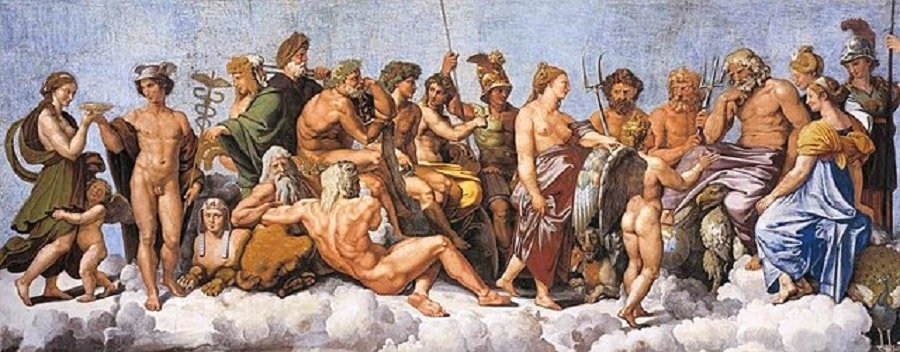
For some added clarification, note that all the Olympians referenced in Greek mythology resided on Mount Olympus, but not all of the gods in the pantheon are believed to have been Olympians. To be an Olympian meant that the god in question had to live on Mount Olympus, but there were gods that lived in tons of other places.
For example, Chthonic gods lived in the Underworld while lesser beings like Nymphs, Centaurs, and Satyrs lived amongst nature. Meanwhile, primordial deities (beings that embodied cosmic forces) just…existed, being everywhere and nowhere at once.
Olympian Gods Family Tree
Admittedly a messy undertaking, hashing out the family tree of the Greek gods is a bit more than just complicated. It is a massive tree and…there are a lot of interwoven branches, to say the least.
When it comes down to the twelve gods that earned the title of “Olympian,” they are all directly related to Zeus in one way or another. The prolific King of the Gods is a father to seven of the twelve Olympians, and a brother to the other four.
The 12 Olympian Gods and Goddesses
The twelve Olympians ruled from Heaven on high, looking down on the mortal realm from Mount Olympus. Embodied in fantastical Homeric hymns, the righteous Greek gods and goddesses that were worshiped in ancient Greece were notably relatable, and more often than not more human than god-like. In all their glory, even the Olympian gods faltered at times.
Furthermore, the Olympians were devoted members of the Council of Olympus, which was a divine council that met during uniquely tumultuous times, as seen in Homer’s Odyssey to aid Odysseus in his return home after the Trojan War.
As far as administrative duties go, Zeus and Hera were the heads of the Council. The remaining Olympians play a lesser role, otherwise, heeding the orders of the divine power couple and confronting them with their own concerns.
Zeus

If you start from the top of the list of the twelve Olympian gods, you’ll find Zeus. This Greek god is known to control the power of storms and lightning, which he fashions into a javelin-like weapon to smite his challengers. In the ancient Greek religion, Zeus is the ultimate supreme deity: gods and mortals alike have to answer to him.
Additionally, as one of the many gods with a penchant for adultery, Zeus is the father of a veritable number of mortal heroes and great gods.
In one of his (many) famous myths, a young Zeus frees his siblings from the belly of the tyrant Titan, his father Cronus. Zeus and his allies then went on to defeat the Titans in what became known as the Titanomachy. The war’s aftermath saw Zeus officially become the King of the Heavens and marry to his eldest sister, Hera.
Unfortunately, thanks to Zeus’ serial infidelity and Hera’s destructive jealousy, the couple didn’t have a harmonious marriage.
READ MORE: Zeus: Greek God of Thunder
Hera
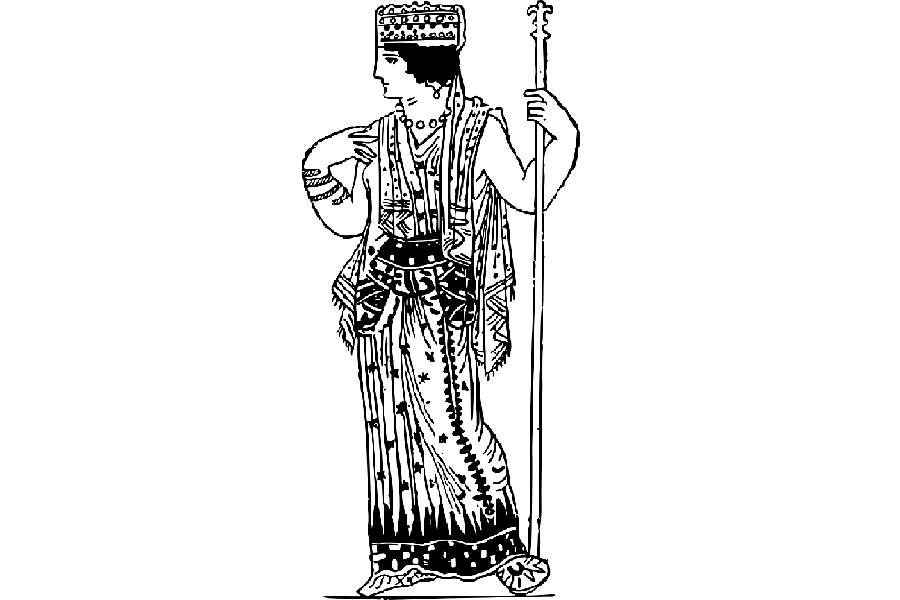
Introducing Hera: the all-important goddess of marriage and childbirth in the Greek religion. She is both the sister and wife of Zeus, which makes her the de facto Queen of the Gods.
In one myth surrounding the circumstances of Hephaestus’ birth, as it is referenced in Hesiod’s Theogony, Hera “was very angry and quarreled with her mate” (Theogony, 901), which provoked her to bear Hephaestus on her own in retaliation against Zeus bearing Athena from his head. The goddess desired a son stronger than Zeus, and her tendency for competition led her to even lead an ill-fated coup against her husband.
In most myths comparatively, she is the bane of her husband’s – and his illegitimate children’s – existence. Notably quick to anger and fall into fits of jealousy, this goddess would go to the ends of the Earth to ensure the demise of the women in her husband’s life.
Which, honestly, is a bit ironic for the patron goddess of women.
The queen has notably cursed the kind-hearted goddess Leto, the priestess Io, and was the indirect cause of princess Semele’s death; not to add her continuous attempts to literally murder Zeus’ other children until they get on her good side.
READ MORE: Hera: Greek Goddess of Marriage, Women, and Childbirth
Poseidon
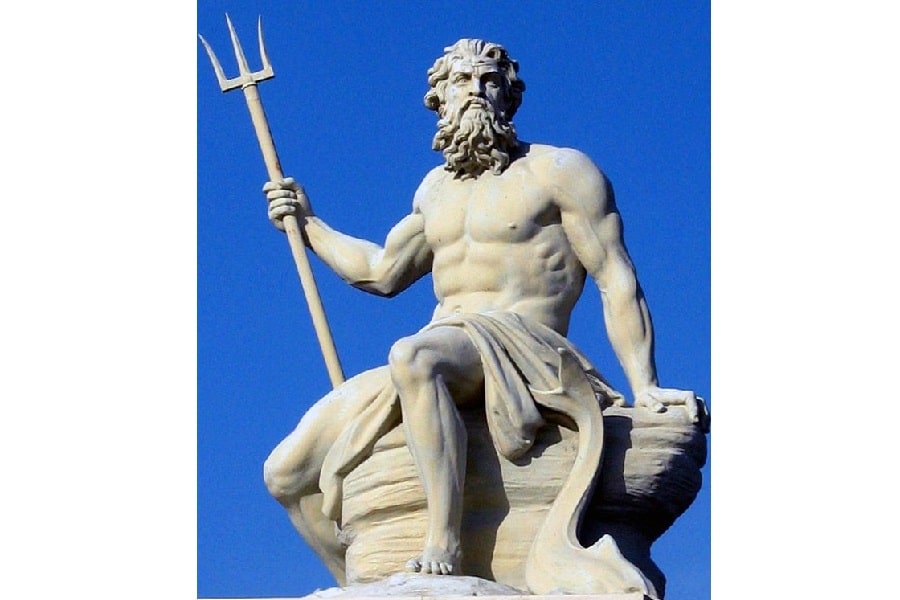
Poseidon is the god of the sea and water and earthquakes in ancient Greek mythology. As the brother of Demeter, Hades, Hestia, Zeus, and Hera, Poseidon fought in the 10-year-long Titanomachy. He is usually depicted as a bearded gentleman that wields the signature Poseidon’s trident, and some mosaics show him to be riding in a chariot that is pulled by seahorses.
According to myth, Poseidon held a fondness for the Aegean Sea (he even owned property there!), which was possibly why he so desperately wanted to become the patron of the young city of Athens. He was also known by his Roman name, Neptune, who was originally a god of fresh water as Neptunus prior to 399 BCE.
READ MORE: Poseidon: The Greek God of the Sea
Demeter
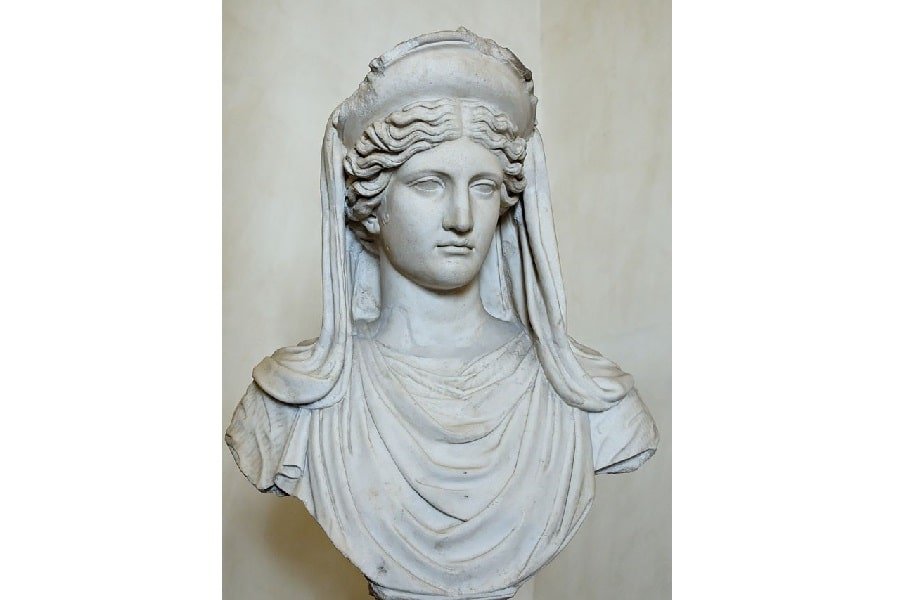
As the middle daughter of the Titans Cronus and Rhea, Demeter has been thrown into the center of numerous family dramas over the course of time. And, she proves that Hera isn’t the only one of the goddesses that has the ability to lash out.
Most namely, in the myth surrounding the abduction of her daughter, Persephone, by Hades, the goddess of grain threw the Earth into famine from her distress. She refused to listen to the prayers of humans to alleviate their suffering, resulting in more gods and goddesses getting their inboxes swamped.
This act stressed out the King of the Gods so much that he tried to mediate the situation with Hades ASAP.
READ MORE: Demeter: The Greek Goddess of Agriculture
Artemis
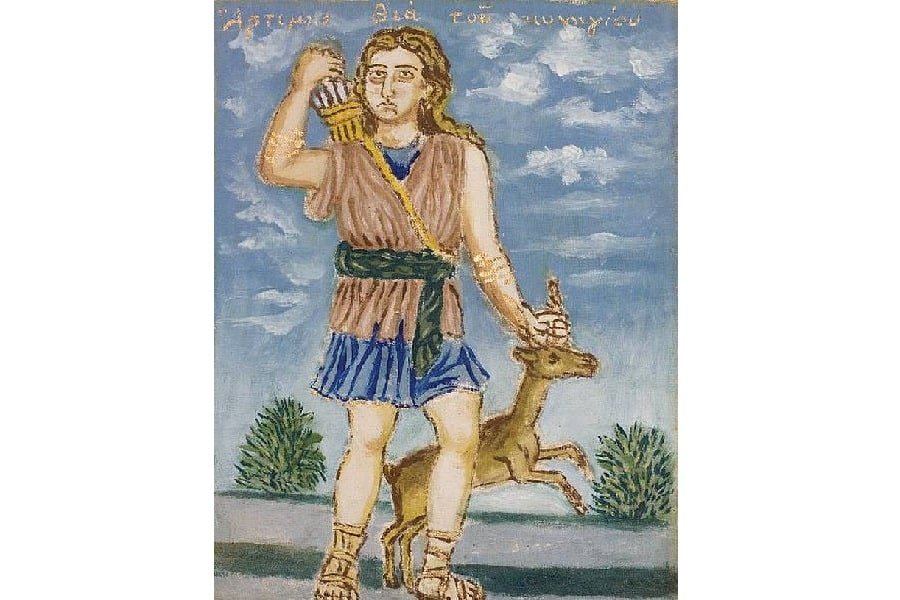
The twin sister of Apollo and the daughter of Zeus, Artemis is the goddess of the moon, chastity, vegetation, wild animals, and of hunt. She is believed by the ancient Greeks to have a silver bow that shot silver arrows, as opposed to her twin, Apollo, who had a bow and arrow set made of gold.
In the myth focusing on the strenuous birth of the divine twins, after her mother, the Titaness Leto gave birth to her, Artemis acted as a midwife for the birth of her brother. This leads Artemis to occasionally be associated with childbirth, which tacks her onto a list of childbirth goddesses that includes Hera, Leto, and Eileithyia.
READ MORE: Artemis: Greek Goddess of the Hunt
Apollo

Being the golden son of Zeus, Apollo was best known as the twin brother of the goddess Artemis. He is the god of archery, prophecy, dance, music, sunlight, and healing.
Along with his twin sister, the pair became famed archers across the Greek world. To emphasize this impressive ability, Apollo was given the title of “Far-Shooter” in multiple hymns. Of the twelve gods, he was closest with Artemis and Hermes, with most Greek myths having him be found in their company.
One unique thing about Apollo is his distinct lack of a Roman name: he simply didn’t gain enough traction amongst the early Roman populace to get one. This doesn’t mean he wasn’t worshiped within the Empire (he certainly was when the Roman Empire expanded into the Grecian city-states). Instead, he didn’t attract any expansive cults as seen with some of the other major Roman gods and goddesses.
READ MORE: Apollo: The Greek God of Music and the Sun
Ares
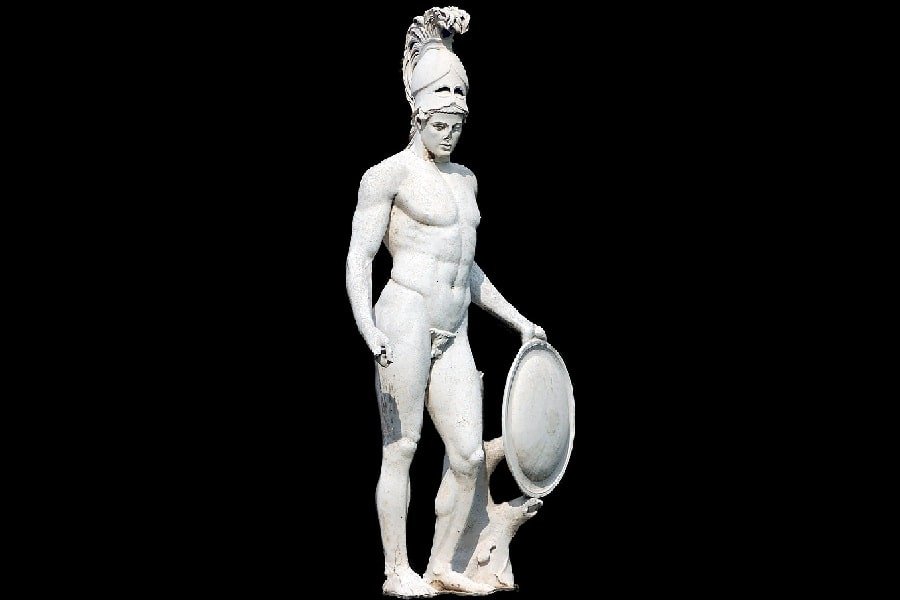
Next is everyone’s favorite infamous war god: Ares.
Best known as the ancient Greek embodiment of war’s chaos and destruction, Ares was known to wield a bloody spear and have a terrifying entourage accompany him on the battlefield. He was also famous for an explosive rage that challenged the balance sought by the other Olympians, like his sister.
Whereas Athena was a wise leader and tactful warrior, Ares represented a more reckless and animalistic approach to warfare. Both siblings acknowledged aspects of war according to the Greeks, but the daughter of Zeus was by far favored.
Saying that this god of war wasn’t all blood and clashing armor. Ares had a shameless love affair with the goddess Aphrodite, another one of the twelve great gods of Mt. Olympus and the goddess of love and beauty.
In one myth, the couple was caught getting hot and heavy by Hephaestus, who ensnared them in an unbreakable net. The god of the forge then called upon the Council to offer proof of his wife’s infidelity and Ares’ bold involvement in an effort to embarrass the lovers out of each other’s arms.
READ MORE: Ares: Ancient Greek God of War
Athena

Another god of war, Athena was far more of a tactician than her half-brother, Ares. This daughter of Zeus was stern and wise. As a champion of heroes, Athena aided the likes of Heracles, Perseus, and Jason. She was known to award heroic acts with blessings and had direct influence over the noble prowess of Greek heroes in the Trojan War.
In Greek mythology, Athena was frequently in opposition to the god Poseidon. While this can certainly be seen in the Medusa myth, there is evidence of a rivalry between the two. She even fought with her uncle over who would become Athen’s city god.
In the famous dispute with Poseidon over who would become the patron god of the city of Athens, Athena offered the people an olive tree as a gift, which would go on to symbolize peace and prosperity. This won her the competition.
READ MORE: Athena: Goddess of War and the Home
Aphrodite
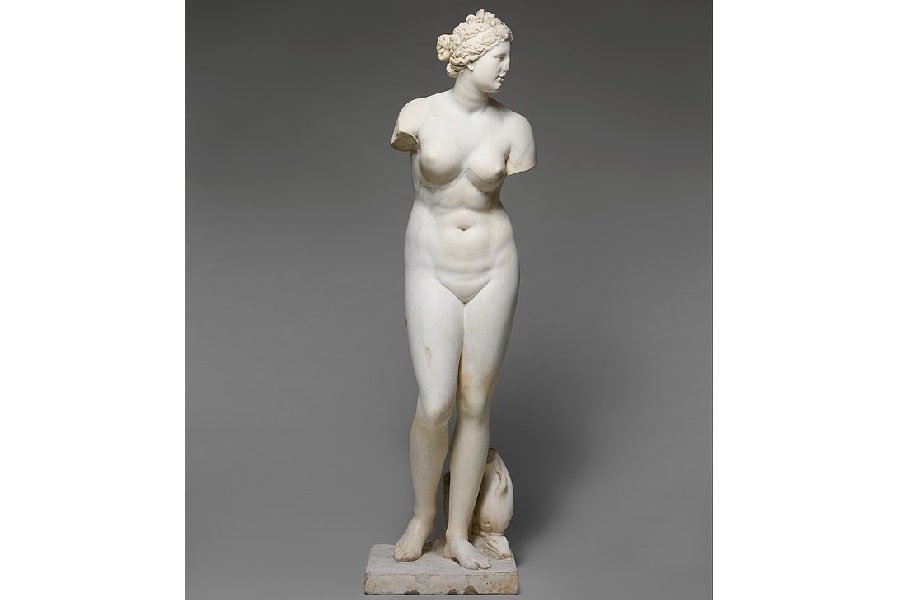
So, Aphrodite has quite an interesting origin story. During the Titanomachy, Zeus castrated his father, and threw his father’s genitals into the sea; foam mingled with the blood, which created the goddess of love herself.
Yeah: she sort of just existed then, single and ready to mingle.
This goddess enjoyed making the love lives of gods and mortals her playthings, with not even the Twelve Olympians safe from her influence. Meanwhile, the only god that could really exact revenge on Aphrodite was believed to be Zeus, who had her fall helplessly in love with a mortal.
Despite her marriage to Hephaestus, Aphrodite was fully willing to cheat on her husband with other gods, with her most consistent affair being with Ares, the god of war. Of her children with Ares, Aphrodite had the goddess Harmonia, the fearful twins Phobos and Deimos, the love god Eros, and the young Anteros.
When in Rome, Aphrodite’s Roman equivalent was the goddess Venus.
READ MORE: Aphrodite: Ancient Greek Goddess of Love
Dionysus
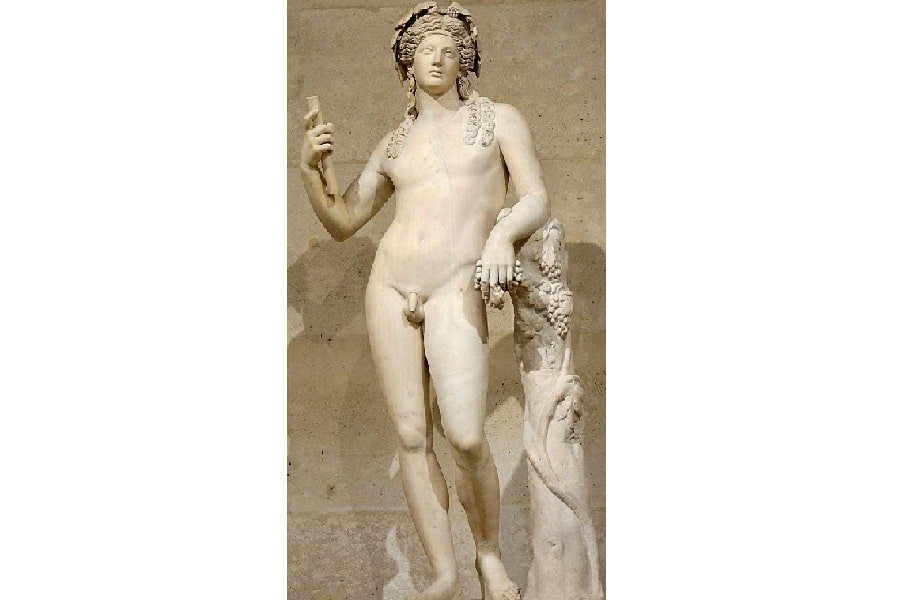
As a god, Dionysus was uniquely born twice – or, in a way, reincarnated. At his initial conception, Dionysus was said to be born from the union of Zeus and Persephone on the island of Crete, and he was ripped to pieces during a conflict with the antagonizing Titans. Luckily enough, Zeus managed to salvage the soul of his son, eventually slipping it into a drink that he then gave to his new lover, Semele.
A Theban princess and renowned beauty, Zeus vowed to give Semele anything she desired. When she became pregnant (with Dionysus), Hera found out about the affair and began plotting her demise immediately. Under disguise, Hera convinced the expecting mortal mother to request her very immortal partner to reveal his true form to her. Unfortunately, infatuated Semele didn’t know that seeing a god in their natural state would mean death, and Zeus, bound by oath, could not deny his partner what she wanted.
Okay, so Semele burnt to a crisp. Somehow, Zeus managed to save her fetus and stitched it to his thigh in a desperate attempt to have the child live. And the craziest part? Besides giving Zeus a noticeable limp, it totally worked. Dionysus was again born as the son of Zeus.
Dionysus quickly became one of the major deities in the Greek world as the god of wine and fertility. Under the Roman name, Bacchus, he became associated with insane parties, dramatic theatrical performances, and bouts of madness.
READ MORE: Dionysus: Greek God of Wine and Fertility
Hephaestus
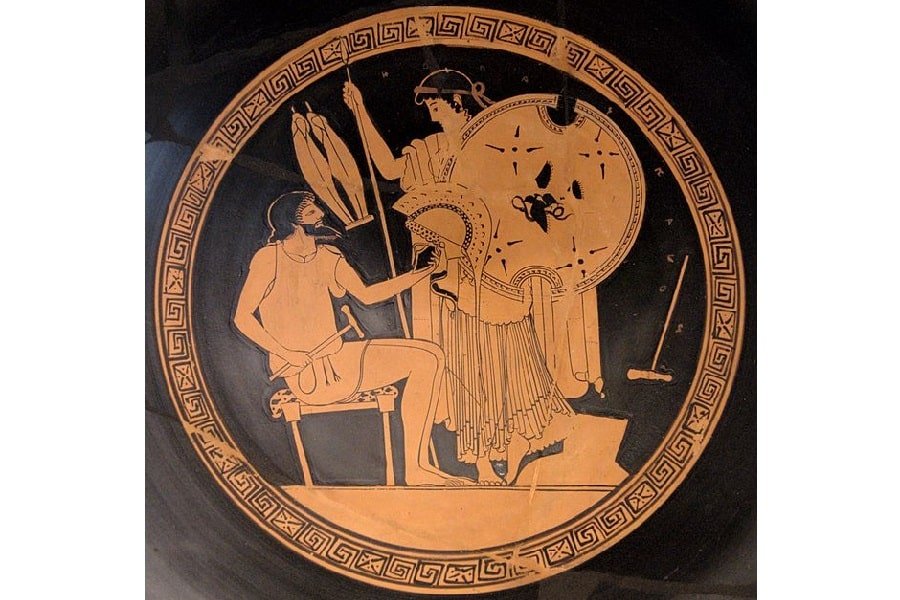
Everyone knows Hephaestus: this god of the forge and fire is sort of notorious.
He was the only ugly god, according to the ancient Greeks, which was incredibly unusual for the divine. On top of this, he was bold enough to seek revenge on Hera – literally one of the most vindictive goddesses in the pantheon – for casting him out of Olympus when he was born. In this tale, he made her a throne of precious metals, and when she sat on it, he trapped her there. Despite the pleas of the other Olympians, Hephaestus did not budge. He stubbornly proclaimed “I have no mother.”
Hera remained trapped and Hephaestus remained unmoved until Dionysus and his festive procession stopped by his workshop, got him wine drunk, and brought him up to Olympus. Here, he became the patron of craftsmen and worked as the personal blacksmith of the gods. His notable creations include Hermes’ signature helmet and sandals, Achilles’ armor, Helios’ chariot, Eros’ bow and arrows, and the bronze automaton Talos.
READ MORE: Hephaestus: The Greek God of Fire
Hermes

Also known as the messenger god, Hermes is the son of Zeus and the Pleiade, Maia. Not one to dawdle, Hermes left his cradle as soon as he could to start getting into trouble. According to the Homeric hymn, “To Hermes,” the young immortal first invented the lyre before running off to steal cattle from Apollo’s herd.
Opposing their incredibly tense relationship at first, Apollo and Hermes are now deemed to be best friends by Classical historians. Apollo went as far as to claim to love no Immortal better than Hermes after they reconciled about the events of Hermes’ hymn.
Mischievous, wily, and quick-witted, Hermes can be identified in various artworks by his wearing of winged sandals and a winged hat, while carrying the famed caduceus.
READ MORE: Hermes: Messenger of The Greek Gods and Hermes’ Staff: The Caduceus
Honorable Mentions
Although these two Greek gods didn’t make the final list of Olympians, they are still frequently closely associated – or interchanged – with them.
Hestia
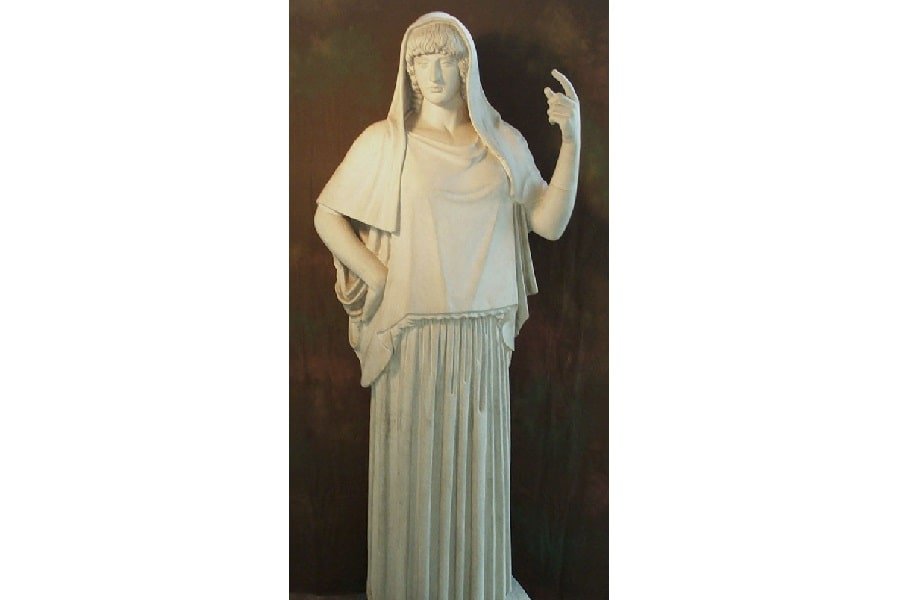
While the goddess Hestia is a sister to Zeus and three other Olympian gods, she is not viewed as an Olympian herself. As the goddess of the hearth, home, and family, Hestia stays in the homes of devout worshippers.
However, ask around and you may find some people including Hesita as an Olympian god in the place of Dionysus, or as a thirteenth Olympian altogether (although twelve is generally viewed as an auspicious number in Greek mythology). Other iterations describe Hestia willingly giving her seat to Dionysus.
READ MORE: Hestia: Greek Goddess of the Hearth and Home
Hades
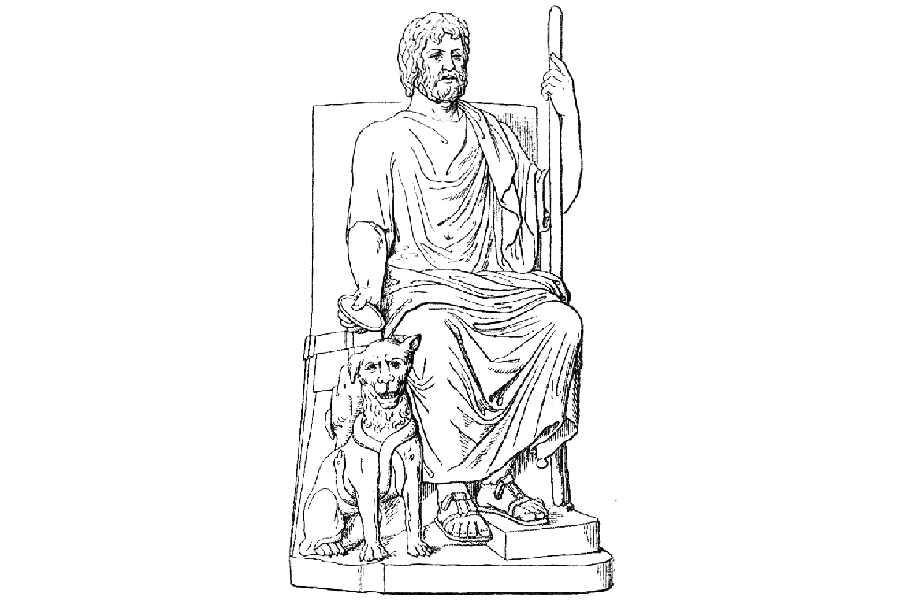
As for Hades, the brooding King of the Underworld and god of death, he only went topside when there was an emergency. His position as the god of the dead in ancient Greece kept him largely away from the airy slopes of Mount Olympus, where the other gods resided, and instead down in the gloom of the Underworld.
After all, overseeing the affairs of the dead was taxing work, and Hades had to stay down below to keep order.
READ MORE: Hades Helmet: The Cap of Invisibility